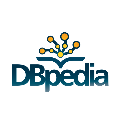Wikipedia articles are hierarchically organized through categories and lists, providing one of the most comprehensive and universal taxonomy, but its open creation is causing redundancies and inconsistencies. Assigning DBPedia classes to Wikipedia categories and lists can alleviate the problem, realizing a large knowledge graph which is essential for categorizing digital contents through entity linking and typing. However, the existing approach of CaLiGraph is producing incomplete and non-fine grained mappings. In this paper, we tackle the problem as ontology alignment, where structural information of knowledge graphs and lexical and semantic features of ontology class names are utilized to discover confident mappings, which are in turn utilized for finetuing pretrained language models in a distant supervision fashion. Our method SLHCat consists of two main parts: 1) Automatically generating training data by leveraging knowledge graph structure, semantic similarities, and named entity typing. 2) Finetuning and prompt-tuning of the pre-trained language model BERT are carried out over the training data, to capture semantic and syntactic properties of class names. Our model SLHCat is evaluated over a benchmark dataset constructed by annotating 3000 fine-grained CaLiGraph-DBpedia mapping pairs. SLHCat is outperforming the baseline model by a large margin of 25% in accuracy, offering a practical solution for large-scale ontology mapping.
翻译:暂无翻译





